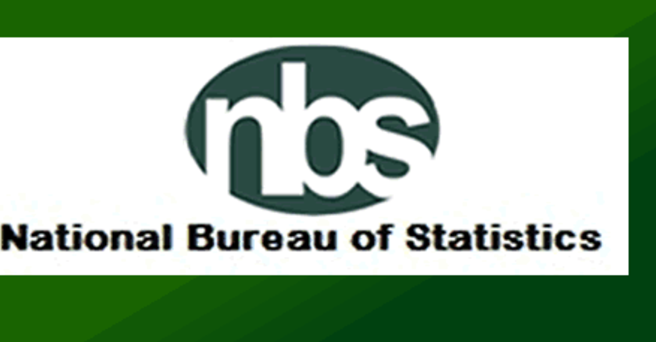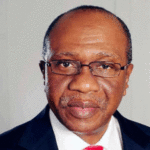Tackle Insecurity, Reopen Borders To Curb Inflation, OPS Urges FG

- CPI hits 14.89% in November
Analysts and members of the organised private sector yesterday urged the Federal Government to step up efforts in tackling insecurity and ramping up measures to ensure food security amidst mounting inflationary pressures.
They also advised the Federal Government to reopen the country’s land borders, even as they stressed the need to apply strict control on its neighbours to respect the ECOWAS protocol of rule of origin.
The analysts, in separate interviews with Flavision following the latest data from the National Bureau of Statistics (NBS) that put inflation at 14.89 per cent, called for government’s continued support for local agricultural production and improving the security of farmers against insurgency, banditry and kidnappings.
They believed the measures could help address the upward trajectory in inflation rate, which increased to 14.89 per cent in November, from 14.23 per cent in the preceding month.
The Consumer Price Index (CPI), which measures inflation, increased by 14.89 per cent (year-on-year) in November compared to 14.23 per cent in the preceding month, according to the NBS.
The NBS attributed the 0.66 percentage increase in the headline index to increases in all the parameters that determine inflation, including food and non-food commodities.
According to the CPI figures for November, which was released by the statistical agency yesterday, the composite food index rose sharply by 18.30 per cent in the review period compared to 17.38 per cent in October.
The NBS said the rise in the food index was caused by increases in prices of bread and cereals, potatoes, yam and other tubers, meat, fish, fruits, vegetables and oils and fats.
Core inflation, which excludes the prices of volatile agricultural produce, stood at 11.05 per cent in November, down by 0.09 per cent when compared with 11.14 per cent recorded in the preceding month.
The highest increases in the core index were recorded in prices of passenger transport by air, medical services, hospital services, repair of furniture, passenger transport by road, maintenance and repair of personal transport equipment, vehicle spare parts, hairdressing salons and personal grooming establishments, pharmaceutical products, paramedical services and motor cars.
However, the urban inflation rate increased by 15.47 per cent (year-on-year) in November from 14.81 per cent in October while the rural inflation rate increased by 14.33 per cent in the review period from 13.68 percent in October.
On a month-on-month basis, the headline index increased by 1.60 per cent in November from 1.54 per cent.
Commenting on the development, an economist, Dr. Muhammad Rislanudeen, called for more support for SMEs to ramp up local industries, reduce unemployment and support V-shaped recovery and post-COVID-19 growth.
He said:
With border closure, rising insecurity in the farms, adoption of cost-reflective tariff for electricity, multiple taxation at both federal and sub-national levels and high exchange rate, we will continue to find difficulty in subduing inflation as it persistently heads northwards as a direct impact of cost-push inflation.
Government’s decision to consider reopening our borders is apt but we need to put strict control on our neighbours to respect the ECOWAS protocol of rule of origin.
Former Director-General, Abuja Chamber of Commerce and Industry (ACCI), Dr. Chijioke Ekechukwu, blamed the rising inflation on insecurity, forex and the impact of the pandemic.
He said:
It is not likely that the inflation rate will drop in the short run. This is so because the issues that led to the increase of the rate have not been addressed nor resolved.
On his part, President, Capital Market Academics of Nigeria, Prof. Uche Uwaleke, said the fiscal authorities have greater roles to play in curtailing inflation as the pressures are caused primarily by non-monetary factors.
He explained that efforts should be directed towards tackling insecurity and boosting food production as a way out of the rising prices of commodities.
According to the former Imo State commissioner for finance, investing in the agriculture value chain will boost real GDP growth given the sector’s 30 per cent contribution at the moment.
The Director-General of the Lagos Chamber of Commerce and Industry (LCCI), Dr. Muda Yusuf, told THISDAY that the mounting inflationary pressure was expected given the prevailing economic conditions and the escalating cost environment.
Yusuf said the trend was an indication that key drivers of inflation have not abated, some of which he listed to include the sharp exchange rate depreciation, high transportation cost, the perennial bottlenecks at the Lagos ports, security challenges impeding agricultural output and demand pressures resulting from the festive season.
He said:
High inflation typically weakens purchasing power and aggravates the poverty incidence in the country. Mounting inflationary pressures also impacts on production and operating costs across sectors. It also erodes the profit margins of businesses.
He added that there is no quick fix to the inflation challenge and recommended that
we need to address structural constraints to output and productivity, fix the problem of logistics in all its dimensions, tackle the worsening security situation and reform the foreign exchange market to reduce volatility and uncertainty. These are the key solution options to deal with the menacing problem of inflation.
Also, the Director-General of the National Association of Chambers of Commerce, Industry, Mines and Agriculture (NACCIMA), Ambassador Ayo Olukanni, said various figures released by the NBS that showed the trend in inflation in various headings were expected and called on the federal government to reopen the borders to increase food supply and reduce food price inflation.
Olukanni said:
We are not surprised by the inflationary trend in the economy. However, we request that the federal government should tackle it by implementing the various stimulus packages it announced to strengthen the economy, especially the Economic Stability Programme (ESP). These funds should be released to address the challenges it is meant for.
We were delighted when we got the hint from the Minister of Finance, Budget and National Planning that the borders would be reopened soon following the recommendations that were made to the federal government. Now, this inflationary trend is an indication that the government should quickly tackle the whole issue of reopening the border without any further delay.
The Acting Director-General of the Manufacturers Association of Nigeria (MAN), Mr. Ambrose Oruche, had earlier said the reopening of the borders would help in reducing the rising inflation, especially food price inflation.

Justin Nwosu is the founder and publisher of Flavision. His core interest is in writing unbiased news about Nigeria in particular and Africa in general. He’s a strong adherent of investigative journalism, with a bent on exposing corruption, abuse of power and societal ills.













